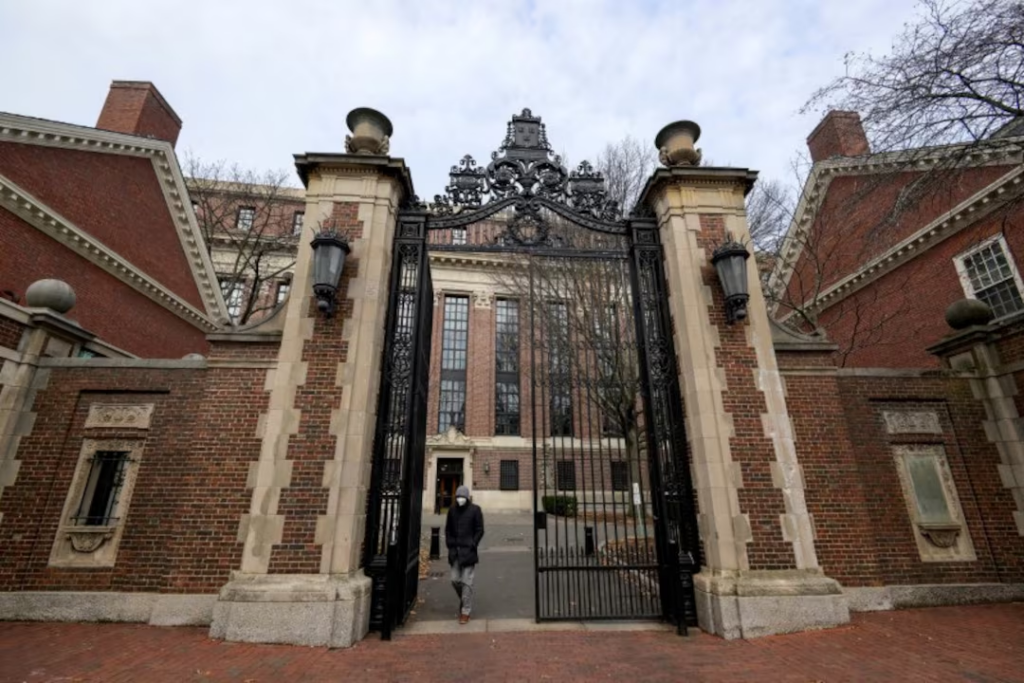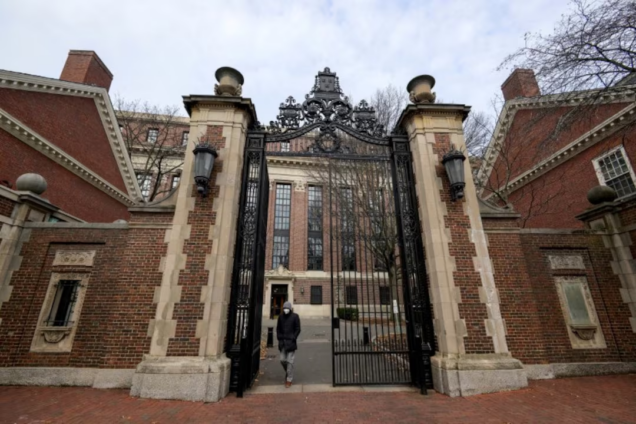
Audio By Carbonatix
The percentage of Black students in Harvard University's freshman class dropped by more than a fifth following a landmark U.S. Supreme Court ruling that barred colleges from using race as a factor in admissions, according to data released by the school on Wednesday.
The Class of 2028 is 14% Black, compared with 18% last year, Harvard said, while the share of Hispanic students ticked up slightly from 14% to 16%.
Harvard, one of the world's most elite universities, was one of two defendants in the 2023 Supreme Court case, along with the University of North Carolina.
The schools argued that promoting racial diversity improved the educational experience for all students on campus, but the court's conservative majority ruled that taking race into account - commonly known as affirmative action - was a form of discrimination.
Many colleges had warned that prohibiting them from considering race, as admissions offices had done for decades, would inevitably lead to a drop in minority enrollment.
Thus far, the data on the first classes admitted since the ruling at several selective schools have presented a somewhat mixed picture.
Some top schools, such as Yale and Princeton universities, showed little change this fall among Black and Hispanic students.

Others saw precipitous declines. At the Massachusetts Institute of Technology, the percentage of Black, Hispanic, Native American or Pacific Islander students in its freshman class dropped to 16%, compared with an average of 31% over the previous four years.
Brown University, another elite school, saw its Black student share drop from 15% to 9% and its Hispanic share fall from 14% to 10%, according to the school's newspaper.
Amherst College, one of the country's top liberal arts colleges, reported that only 3% of its incoming class is Black, compared with 11% last fall.
The lawsuit against Harvard had accused the school of giving preference to some minorities at the expense of Asian American applicants.
The percentage of Asian American students in Harvard's freshman class held steady at 37%, Harvard said.
After the 2023 ruling, many schools bolstered recruitment programs, sought to remove application barriers and pursued other changes in an effort to increase diversity.
Other advocates have lobbied for state legislatures to pass bills that ban admission preferences for legacy applicants.
In releasing its data, Harvard noted that it had sent admissions staff to more than 150 cities to do student outreach and joined a consortium of universities seeking to raise awareness about their schools in rural communities, among other steps.
"The change in law did not change our fundamental commitments," Hopi Hoekstra, the dean of the Faculty of Arts and Sciences, wrote in a letter to colleagues announcing the data.
"We will continue to work tirelessly to pull down barriers to a Harvard education, and, in compliance with the law, to deepen even further our commitment to broad-based diversity."
Latest Stories
-
Joy FM’s iconic 90’s Jam returns tonight: Bigger, better, and packed with nostalgia
33 minutes -
Uproar as UG fees skyrocket by over 25% for 2025/2026 academic year
2 hours -
Japan PM joins fight for more female toilets in parliament
3 hours -
Ga Mantse declares war on fishing industry child labour
3 hours -
Adom FM’s ‘Strictly Highlife’ lights up La Palm with rhythm and nostalgia in unforgettable experience
4 hours -
OMCs slash fuel prices as cedi gains
5 hours -
Around 40 dead in Swiss ski resort bar fire, police say
6 hours -
AFCON 2025: Aubameyang and Nsue make history among oldest goalscorers
7 hours -
AFCON 2025: How Kwesi Appiah’s Sudan qualified for round of 16 without scoring any goal
8 hours -
Ghana is rising again – Mahama declares
8 hours -
Firefighters subdue blaze at Accra’s Tudu, officials warn of busy fire season ahead
8 hours -
Luv FM’s Family Party In The Park ends in grand style at Rattray park
9 hours -
Mahama targets digital schools, universal healthcare, and food self-sufficiency in 2026
9 hours -
Ghana’s global image boosted by our world-acclaimed reset agenda – Mahama
9 hours -
Full text: Mahama’s New Year message to the nation
9 hours

